All images courtesy of The Creative Catalyst PR
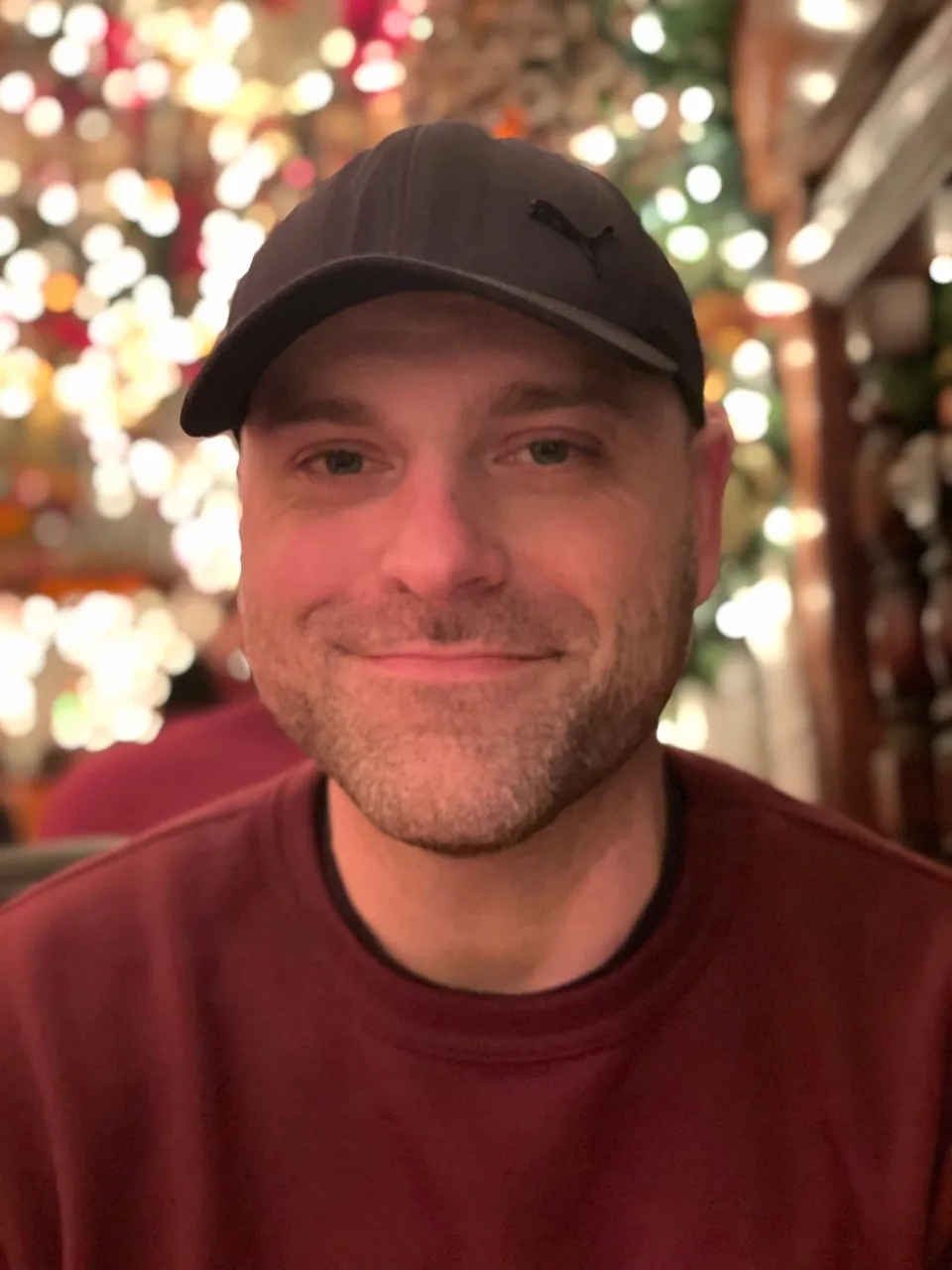
By Andrew Daly
andrew@vinylwriter.com
The music of the 90s is often boiled down to derivative soundscapes that killed the hard rock music of the 1980s, but upon further inspection, the decade of grunge-bred doom and gloom amounted to much more than meets the eye.
Among the most unique and edgy acts of the 90s was Filter, a band led by the ever-defiant frontman, Richard Patrick. Patrick’s unique penchant for off-kilter instrumentation, witty lyrism, and bold swells of grandeur via song defined the latter part of the decade into the early 2000s with albums such as Short Bus, Title of Record, and The Amalgamut proving classic in retrospect.
For Patrick, it would be easy to boil his story down to origins via NIN turned platinum-level star with Filter, but that would be doing the pugnacious bandleader a great injustice.
In the wake of The Amalgamut, Patrick made the hard decision to forgo his dream, pull himself off the road, and enter treatment for alcoholism. Facing the loss of his record deal, and all he worked for, Patrick went on to redefine his legacy in ways that his music never could.
“I can honestly say that going to rehab, and getting help was absolutely the smartest thing I’ve ever done. It saved my life. I’ve been sober for almost 20 years coming up. I take it one day at a time, but it’ll be 20 years this September,” said Patrick.
The story of the 90s doesn’t begin and end as a decade that killed rock music. No, it’s a decade of redefinition through reinvention. It’s the story of the rise of bands such as Soundgarden, Alice In Chains, Pearl, Jam, Nirvana, NIN, and of course, Filter.
Sadly, history has shown us that the tail end of that heat-seeking comet featured the downfall of many of those same alt-rock heroes. But not Patrick. While many of his friends have fallen, Richard Patrick is still standing, still making music, and still using his platform to make a difference.
“I’m happy to say that I’m still alive because a lot of my friends are dead. You’ve got Scott Weiland, Chester Bennington, and Chris Cornell, and that’s just a few of my friends that are not alive anymore because of this evil addiction and disease. It’s probably the biggest achievement in my life to stay sober every day,” said Patrick.
As he continues work on what will be Filter’s 8th record, They Got Us Right Where They Want Us, At Each Other’s Throats, Patrick recently carved out some time with me via phone to run through the people, places, and events that have brought him to this place, right here, right now.
Andrew:
“Murica” has proved to be a polarizing single. What are its origins?
Richard:
Well, it’s kind of a knee-jerk reaction to the right-wing gun stuff we’re seeing in the country, and a reaction to like the way the right sees itself. I just think it’s kind of funny, you know, how crazy it’s gotten, and I guess I kind of picked on that a little bit.
Andrew:
This track is part of a full-length record you’re working on, right?
Richard:
Well, the name of the new record is called, They Got Us Right Where They Want Us, At Each Other’s Throats. And yeah, that’s a long title but it’s really a reaction to the craziness of the world and a lot of the sick stuff that’s going on. It’s cool though because Filter has always talked about weird shit, like how Bud Dwyer holds a press conference and blows his head off. That happened, and I was inspired to write the song “Hey Man, Nice Shot” about him. So, we’ve been writing about political people and events for a long time.
Andrew:
Has that direction ever concerned you in terms of backlash?
Richard:
No, not really. I mean, if I was worried about that, I wouldn’t have gone down the roads I have, right? Like, a long time ago when I wrote “Hey Man, Nice Shot,” a friend of mine told me, “Dude, you should never tell anyone what the song is about.” But I remember thinking to myself, “Well, then what’s the point? If people are horrified, then so be it.” I mean, on one level, I do feel bad because Bud Dwyer’s family reached out to me and said, “Why’d you have to bring this up? We’re trying to forget about this altogether.” I’m like, “Well, he held a press conference. He wanted us to respond to it. This is how I’m responding to it.” I guess I just feel compelled to talk about the weird shit in life, and I’m not afraid of it. I don’t really care about backlash. I guess if there’s backlash, well, then so be it. I can handle it.

Andrew:
What more can you tell us about the new record?
Richard:
Well, Brian Liesegang and I worked on a few songs together for a record that was supposed to be called ReBus. So, that record was put aside, and I took four songs from those writing sessions with Brian, and the first two have come out as “Thoughts and Prayers, and “Murica.” And then there are two more songs that I’m probably going to use, one’s called “Summer Child,” and the other is called “Command Z.” Those are both going to be on the new Filter record, which again, is called They Got Us Right Where They Want Us, At Each Other’s Throats. A lot of the songs were written just by myself, and my guitar player Johnny Radtke is also helping me. Honestly, it’s great. It’s the best shit since The Amalgamut. I mean, it’s an amazing record. It’s very loud and very bombastic. I’m looking forward to this new release. It’s going to be amazing. I’m hoping to have it out by Spring of 2023, and for anyone coming to see us live, no, we won’t be debuting any more new tracks before the spring tour.
Andrew:
Oumi Kapila was an important part of Filter’s last record, Crazy Eyes. Will he feature here as well?
Richard:
Oh, well, with Crazy Eyes, like you said, I did a lot of that with the kid Oumi Kapila. And me and Oumi, well, we haven’t necessarily gone our separate ways, but yeah…we’ve gone our separate ways. [Laughs]. I mean, Oumi is always invited to work on Filter with me, but he’s moving on to doing other things. He’s working on a film score, as he’s a fellow film composer, like me. And that’s the main difference, you know, that Ouimi is not a part of the record. But Brian Virtue mixed Crazy Eyes, and Brian, he’s going to be mixing this new record too, and that will be very important to the end product for sure.
Andrew:
How do you feel that your compositional work for film has affected your work with Filter?
Richard:
Well, I know what a string quartet can do, and I know what a symphony can do, so that helps in some ways, or maybe it alters my mindset a bit. But honestly, I don’t know if it’s really affected it that much because the instrumentation is so much different. That said, I love the computer stuff, and I love cinematic sound design, and those sounds have found their way into the new Filter record for sure.

Andrew:
Going back to your early days, walk me through your early interactions with Trent Reznor.
Richard:
Well, in high school, my band was The Act, and Trent’s band was The Exotic Birds. So, Tom Freer, the drummer for The Exotic Birds asked us to open up for them, and so The Act opened up for The Exotic Birds, and that’s when I met everybody. And then later, I went to Pi Keyboards and Audio where Trent worked, and that’s when I met him officially, so to speak. From then on, Trent, he was always very supportive of me, and even back then, you know, he was very industrious. Trent was a very hard worker, like, he really worked hard at music. Anyway, we just became friends, and we hung out often.
Andrew:
From there, how did you ultimately become a part of NIN?
Richard:
I was still in my band, The Act, and Trent still had The Exotic Birds, but eventually, he kind of disappeared. So, I kept messing around with The Act until I broke it up because I didn’t want to do it anymore, and I guess Trent had heard about that, but I hadn’t seen him in a bit. And then one day, he ran into me and he was like, “Dude, what’s gotten into you lately? What’s up?” And I was like, “Man, I pretty much just listen to Skinny Puppy and Ministry non-stop. Like, that’s all I listen to. I’m into industrial music now.” And he goes, “Dude, I’ve got something for you. How would you like to be in Nine Inch Nails?” Well, I just remember being fully on board immediately. Like, Trent played me “Head Like a Hole,” and it was insane. From that moment on, I was completely and totally in.
Now, by this time, Trent had already finished Pretty Hate Machine, and he was working on sequencing. I remember coming in, and Trent said, “I want to do a segue between “Sanctified” and “Something I Can Never Have,” and I begged him, I said, “Please let me play guitar on the record.” And so he gave me an opportunity to make like a feedback sound, he put that in there, and I got my name on the record. [Laugh]. After that, he took me on tour as the guitar player, and I acquired the nickname “Piggy,” and I was known as “Piggy” from 1989 to 1993 until I left Nine Inch Nails. But yeah, I look back, and it was an amazing, and exciting time. I mean, it was a phenomenon that took off from this tiny little thing to like something huge in only a year. We went from playing clubs on our own to playing Lollapalooza, and it just broke wide open. And then in between all the tours, I had an opportunity to sign with Warner Brothers, and start my own band, Filter. So, that’s what I did in 1993.
Andrew:
Do you have any regrets leaving NIN before being able to fully feature on a record?
Richard:
No, not at all. I had a blast with Nine Inch Nails. It was fun. And Trent, he was an extremely aggressive, and amazing frontman, and just an amazing person to me, but I wanted to do my own thing. I mean, look, there’s nothing like being your own boss. As fun as it is jumping around on stage and playing guitar, it’s even more fun when you’re the creative force behind something else, and it’s your own thing. So, when people ask me, “Do you regret leaving?” I say, “Hell no.” I had a blast. It was fun. It was a great education. But after I started Filter, I sold 6 million records and have been on tour for 30 fucking plus years. I’ve done 10 movie scores, and I’ve done dozens of soundtracks. I’m happy as hell.
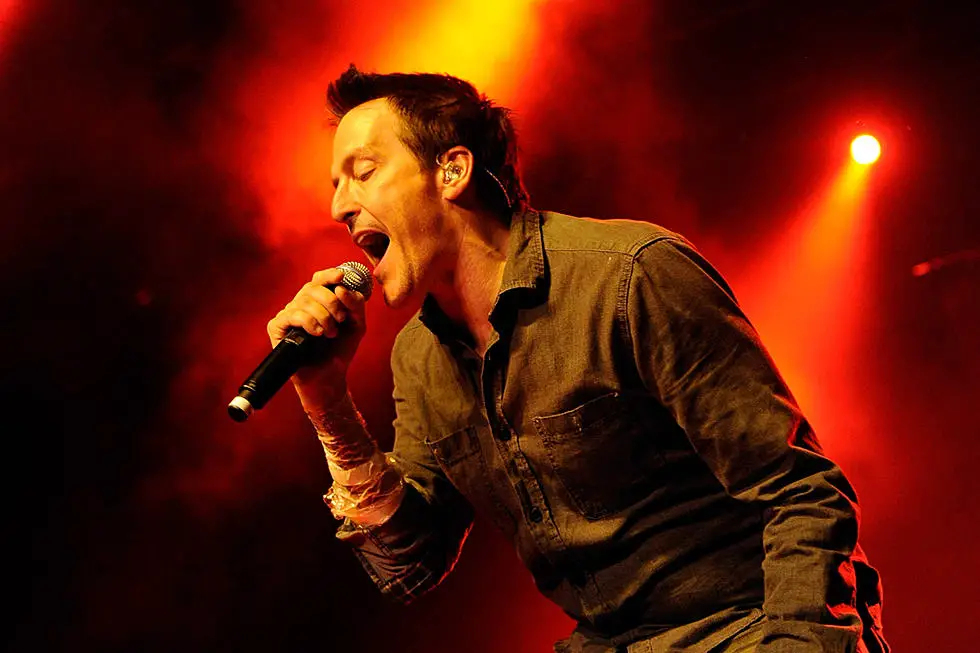
Andrew:
What did your time working under Trent teach you that you still apply to Filter in the present day?
Richard:
Just to have a work ethic, and to literally wake up and be like, “Look, no one’s going to do this for me. I have to work my balls off. I have to work hard. And I have to be true to my music.” You know, Trent, when it came to Nine Inch Nails, he was incredibly focused on the things that separated him from the rest of the world, and that’s something I’ve taken into account with Filter. At first, I was like, “You know, I’m a guitar player. I’m not fully a singer.” But Trent, he was more of a singer, and then he played guitar. I was a guitar player who dabbled in singing, and there were obvious little distinctions between us and it was fun to exploit those things. When I did Filter, it was fun to be like, “Now it’s my turn the rock out my guitar, sing, and do what I want with this.” And I wrote songs like “Hey Man, Nice Shot,” “Jurassitol,” and “Welcome to the Fold,” and those meant a lot. And here I am, working on a new record all these years later. I’m still doing it, and I still have a lot to say, as a musician.
Andrew:
Going into Short Bus, what were some of your inspirations for that record?
Richard:
Oh, man, it was basically me just sticking to my guns musically. Going in, I envisioned Filter as more of a three-piece with sound design as the kind of extra elements that we would have. It wasn’t necessarily like synths, it was more stuff that was like a backward guitar sound, and things like that. I had this idea that I’d accompany the three-piece with things like you put it into the computer, turn it around, drop it down an octave, invert it, and you make music out of that. So, that was the big thing that we were doing at the time. But mainly, I was just focusing on the fact that I was the singer, like, “Okay, now you’ve got to sing, bro. Now, it’s your time to sing and find your own voice.” I had to find my own voice as a singer, and that was fun. I had a blast with that aspect of it.
Andrew:
I wanted to hit on Title of Record, which featured the classic track, “Take a Picture.” That was a major departure musically for you. What was the impetus?
Richard:
Oh, yeah. It was way different for sure. So, I was dating D’arcy [Wretzky] from the Smashing Pumpkins, and I had been out on tour with them for a while, and I loved how elegant their sound was at certain points. I also loved the fact that they could rock out at the same time. Also, when I was a kid, like when I was 13, 14, or 15, I was heavily influenced by The Unforgettable Fire by U2, so I had those ideas in the back of my mind. Basically, I was in an area of my life where I wanted to write a piece of music that made me feel the way drugs and alcohol made me feel when I was on them. I wanted to write something vocally that was traumatic, and that was based on trauma. It’s funny because it didn’t occur to me until later on in my life that the song “Take a Picture” was pretty much a cry for help. I mean, “Could you take my picture because I won’t remember,” that’s based on the fact that I was a blackout alcoholic, and that shit was happening around me all the time, and I couldn’t remember any of it. And the lyric, “Hey, Dad, what do you think about your son now?” that was just me absolutely begging for help, but not really knowing it at the time.
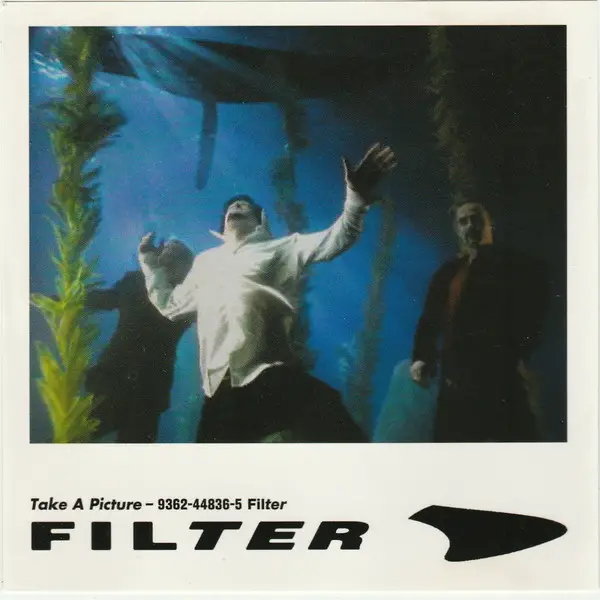
Andrew:
Given your mental and physical state at the time, what was your songwriting process like?
Richard:
The song was totally written from stream of consciousness writing, like, not thinking about it, and just standing in front of a microphone and just going for it. As far as recording, I did everything in one or two takes, and then I’d go back and redo parts of the vocals, and make sure everything was perfect later on in the recording process, while still leaving the initial first ideas intact, you know what I mean? But a song like “Take a Picture” was just a bizarre anomaly in this world of anger that I had been engulfed in. The whole thing was just this mirage where it was like, “Okay, there’s all this trauma, and here I am in the eye of the hurricane.” It was like there was all this trauma going around, and I couldn’t stop it, and then there would be these brief moments of quiet, and softness. It’s hard to describe because it’s a very surreal kind of memory that I have, but that song was definitely like a quiet, peaceful moment in the middle of this maelstrom of activity.
Andrew:
When did your demons come to a head?
Richard:
I’ll tell you what, on September 28th, 2002, I was so sick, and so debilitated from alcoholism, that I ended up quitting a tour that I was on. Here I was, doing something that I had dreamed about ever since I was a child, you know, going on tour, and I had to walk away because I was so sick. I spent my life dreaming of being in a band and playing music in front of thousands of people, and I basically ended up quitting that tour and going to rehab. And you know what? By the time it got to that point, I felt like it was the best idea on the planet, just to lay in a bed in some facility. That’s how tied I was. I was so tired, and I was so hungover, and I was so beat up, that literally, man, the only thing that I could think of doing was sleeping in a bed in rehab. I had to do that just so I could get some peace and quiet in my life.
Andrew:
From there, how did you overcome your struggles with alcohol?
Richard:
It’s hard to put into words, but I literally was like, “Fuck music. Fuck the world. Fuck all of everything that I dreamed of. I need to go to rehab and get my shit together.” I just remember being on tour, and one night I was on a balcony in this hotel room, looking down, and seeing this little bit of pavement on the ground below me, and my mind started drifting to these dark places. And so, there were like these green hills of lawn that were surrounding the pavement, and I remember thinking to myself, “If I jump, and if I can make the pavement, I’ll die. But if I miss, and I hit the grass, I’m going to be a quadriplegic.” And then I remember thinking to myself, “Fuck, am I really debating whether or not to jump based on the fucking geography of this fucking parking lot?”
So, I was sitting there debating killing myself based whether or not I’d miss the pavement, and hit the grass, and suddenly, I just snapped out of it, and I was like, “Damn, I need to go to rehab. I’ve got to give it a shot and see what happens.” After that, I called my girlfriend at the time to come and visit me on the road because I was obviously getting to a place where I just had to see her. And so she flew in from California, and she was packed to stay with me out there for like two weeks, and then as soon as she got to the hotel room, I said, “Listen, I’m sorry you came out here, but I’ve got to go back to Los Angeles. I gotta go to rehab. I can’t live like this anymore. I’m sick with alcoholism. I can’t take this.” So, I went to rehab, I canceled my tour, and it was devastating for me financially, but it was the best decision of my life.
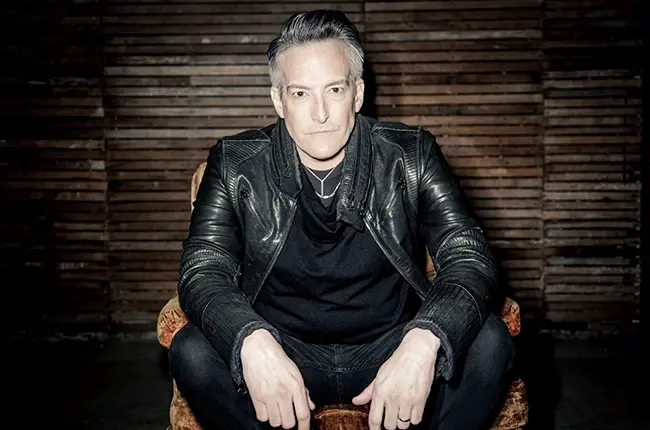
Andrew:
After you cancelled the tour in support of The Amalgamut, what was the support like from Reprise Records?
Richard:
Well, like I said, getting sober was the best thing that ever happened to me, but it hurt me financially in a major way. I mean, look, shit happens when it happens, you know? Sure, I wish it would have happened before the record cycle, because as soon as as I quit the tour, Reprise dropped the record. They punished me because I got sober. Instead of working the record, they said, “If you’re not working the record then we’re not working the record,” and they moved on to something else. And sadly, that’s what happened to The Amalgamut, probably one of Filter’s best records ever. But that’s the way it is, you get sober when you get sober. It happens when it happens. I jumped in with both feet, and I’ve been sober ever since.
Andrew:
Despite all of that, as well as various line-up changes, Filter is still going strong. To what does the band owe its longevity to, Richard?
Richard:
Filter owes its longevity to the fans. We are indebted to our group of folks that love what we do. For example, I just played the show in Buffalo, and there were these two kids who were wearing Filter t-shirts, and they were obviously together. It was this girl and a boy, they were maybe 18 or 19, and they knew every single word to every single song. Man, those are the people that keep me going. I love the fans. I love making music for people. And so, I just keep doing it. I mean, I’m at a stage in my life where movie scores are coming in right, and left, and there are always opportunities for me to stay home and be with my kids. But the fans keep me going, and the fact that they want to hear my stuff, both new and old, it keeps me going, and it keeps me inspired
– Andrew Daly (@vwmusicrocks) is the Editor-in-Chief for www.vwmusicrocks.com and may be reached at andrew@vinylwriter.com
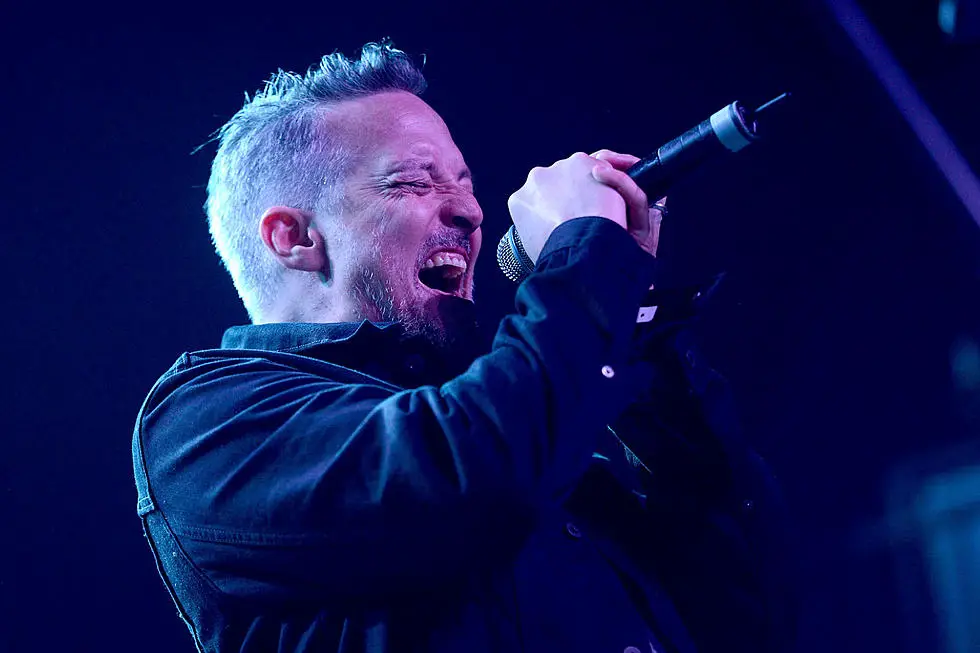




Leave a Reply